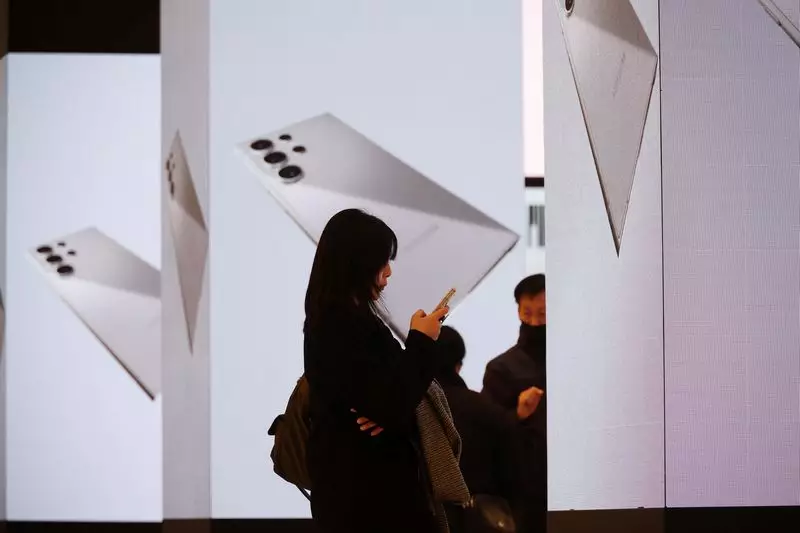Samsung Electronics recently reported a significant rise in its third-quarter profits compared to the previous year, generating an impressive operating profit of 9.2 trillion won (approximately $6.66 billion). This achievement, however, is overshadowed by a stark contrast in the pace of growth compared to the previous quarter, highlighting the challenges the company faces in a competitive market driven largely by advancements in artificial intelligence (AI). Although Samsung has solidified its position as a leader in the production of memory chips, smartphones, and consumer electronics, its financial forecast suggests a cautious outlook for the current quarter.
The Struggle to Leverage AI Opportunities
The semiconductor sector has been witnessing a notable surge due to the increasing demand for AI technologies. Nevertheless, Samsung’s struggle to capitalize on this trend raises concerns about its market strategy. Unlike its competitors, such as TSMC and SK Hynix, who have made significant inroads into the AI chip market—thanks to robust sales to firms like Nvidia—Samsung’s performance has been lackluster in this niche. The South Korean powerhouse has faced obstacles in delivering high-end semiconductors essential for AI implementations, thereby limiting its ability to compete effectively in this rapidly growing area.
While Samsung’s memory chip division has historically been a strong revenue driver, the company anticipates weakened growth as performance in its “set” business, which encompasses smartphones, televisions, and home appliances, continues to falter. The company has refrained from providing specific details regarding the challenges faced in this segment, leaving investors and analysts speculating about potential causes—ranging from a saturated market to increased competition from lower-cost alternatives. This lack of clarity has implications for investor confidence and market expectations.
In stark contrast to Samsung’s mixed results, competitors like SK Hynix and TSMC reported strong earnings driven primarily by their success in the AI sector. Their ability to fulfill the needs of key clients, particularly in the tech-focused industries, has allowed them to gain a competitive edge. The disparity illustrates not only the challenges Samsung faces in executing its strategic vision but also the broader shifts within the semiconductor landscape, where adaptability to market demands can dictate success.
As Samsung navigates through these complexities, the company is urged to rethink its approach towards emerging technologies such as AI. A concerted effort to bolster its capabilities in high-performance semiconductor manufacturing will be essential for Samsung to regain its competitive footing in the industry. With projections indicating limited earnings growth amidst fluctuating demand dynamics, Samsung’s management may need to confront necessary strategic pivots to harness upcoming opportunities effectively. Addressing operational inefficiencies and enhancing product offerings will be vital if Samsung aims to reclaim its status in an increasingly AI-driven market.

